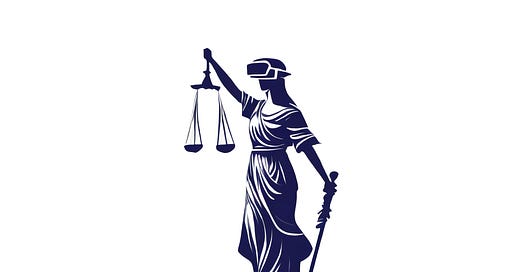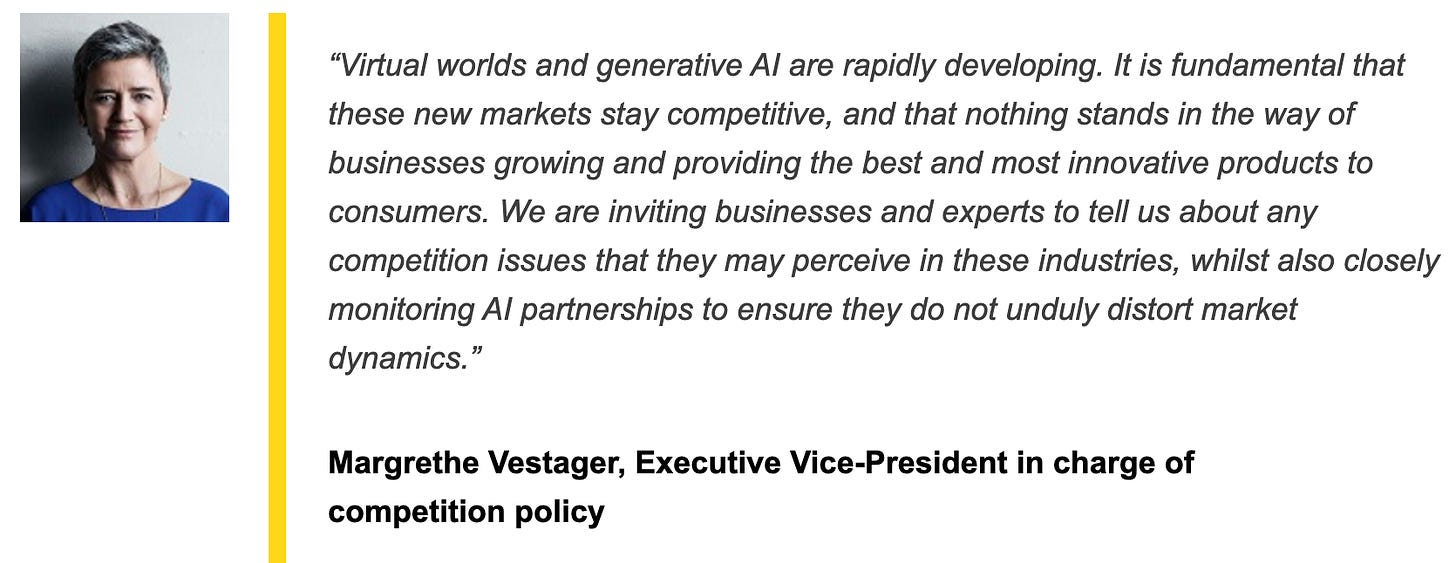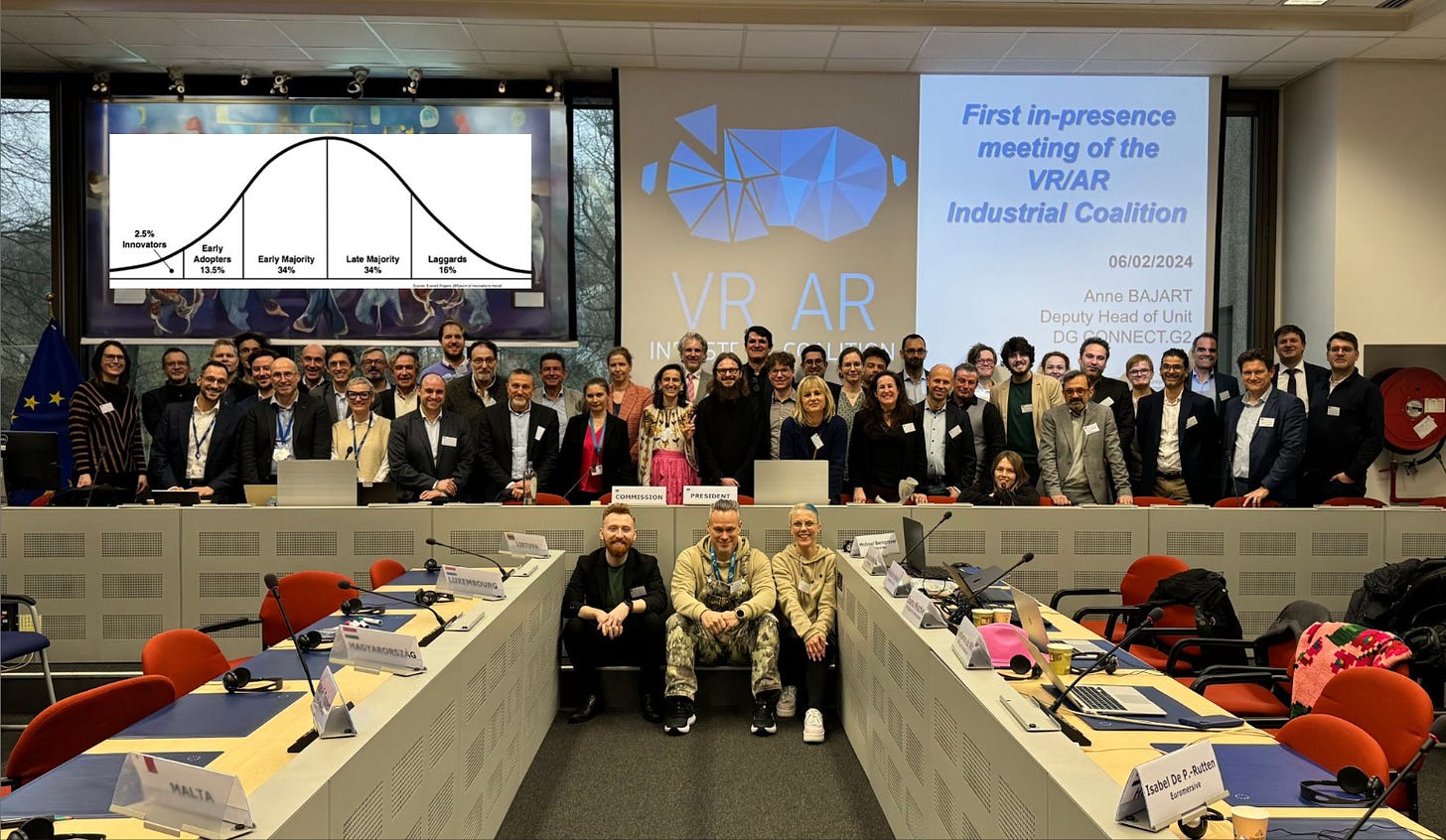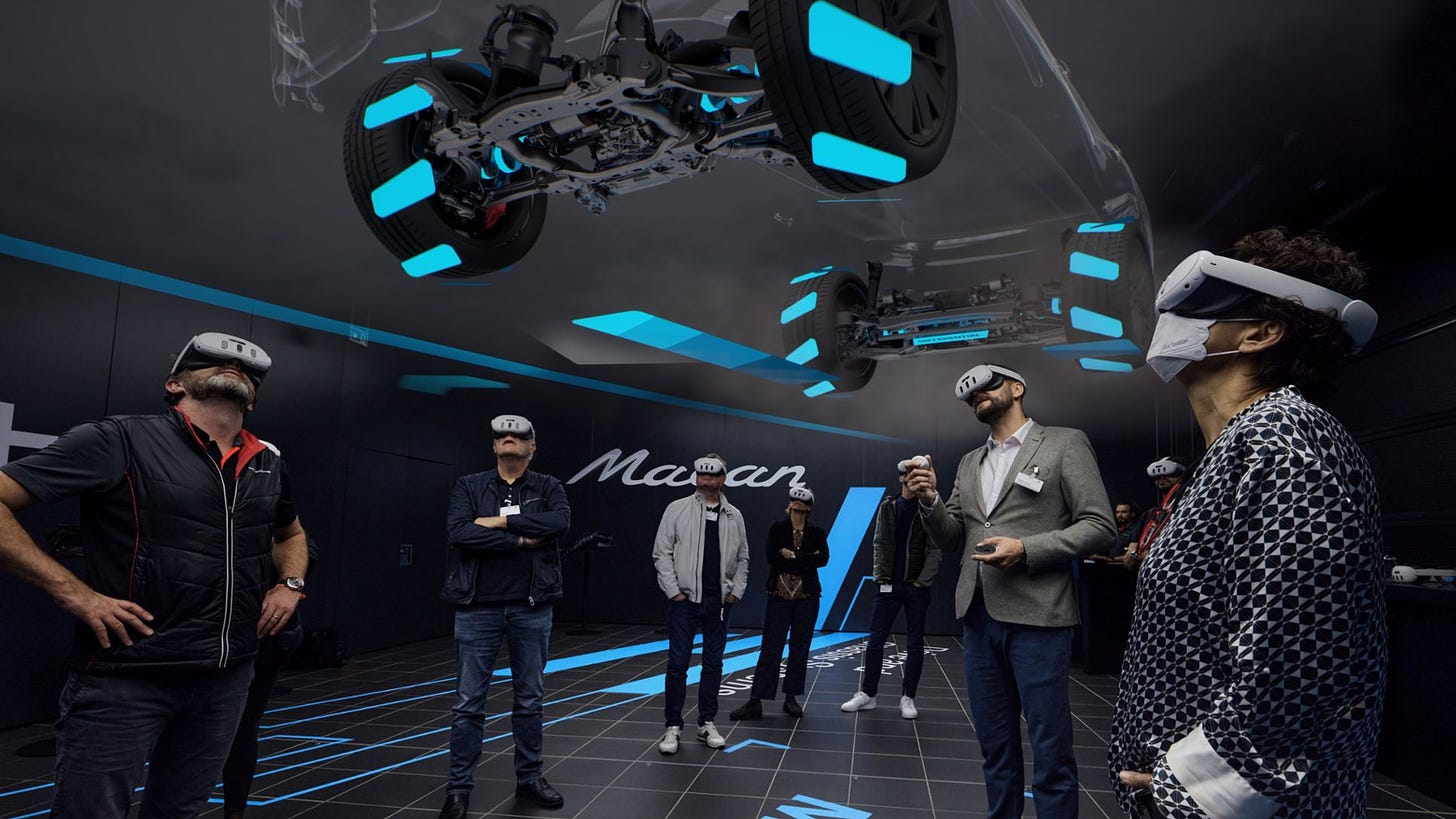“Level the playing field” is competition policy’s most cherished metaphor.
In sports, a tilted playing field disadvantages the team facing uphill. For economists, the perfect market exists where there is no advantage: no company sits atop a hill to the detriment of competitors and consumers. Companies charge precisely what consumers are willing and able to pay. The pitch is flat.
Competition policy is the pursuit of this ideal. Here are two tenants that policymakers should look out for when refereeing in the metaverse.
Antitrust: Calling the shots
Antitrust policy prevents one company (a "monopoly”), several companies (an “oligopoly”), or a collective (a “trust”) from abusing dominant market power—usually determined as enjoying over 25% of a market (for example, at its peak in 2017, Google accounted for 35% of US online ad spend).
Without competition, consumers suffer fewer choices, and prices are no longer determined by their ability to pay. A monopolising power may set the price too high (“gauging”), too low (“cutting”), or in collaboration with their competitors (“fixing”).

In a landmark case in 2004, the EU blindsided Microsoft with a €497 million fine for anticompetitive practices (getting the ball rolling for a string of cases in the EU).
The bloc found that Microsoft—which held over 90% of the global operating system market—abused its position by bundling its operating system (Windows) with its browser (Internet Explorer). In effect, gobbling the market for browsers. In addition to the fine, the EU forced Microsoft to offer Windows without Explorer.
Owing to the persuasiveness of digital goods, today’s referees have a tough time judging what is fair play. And in emerging tech markets, conditions change quickly: in 2022, Meta enjoyed 84% of the global XR headset market. But just nine months later, the share was down to 49%. Worried watchdogs must be careful not to jump the gun.
Meanwhile, developers expanding metaverse offerings across stacks, sectors, and domains must balance strategic business planning with possible antitrust risks. To avoid accusations of abusive monopoly power, companies may need to ensure their products play nicely with others.
As EU antitrust officials warned in 2022, “If one or more metaverse platforms essentially becomes a closed ecosystem, consumers would not be able to travel freely between different metaverse “worlds”. They would, for example, not be able to bring along virtual goods or services from one metaverse platform to another.”
A related concern is that companies betting on the metaverse will disproportionately gain from being the first mover (“tipping”), through quickly reaching a critical mass of customers (“network effects”), or by leveraging existing customer data—the curveball that briefly kept then-Facebook's Oculus from launching in the German market.
It has become clear in the past that digital markets can be fast moving and innovative, but they may also present certain characteristics (network effects, lack of multi-homing, “tipping”), which can result in entrenched market positions and potential harmful competition behaviour that is difficult to address afterwards.
— European Commission’s consultation on competition in virtual worlds (2024)
Companies innovating successfully will, of course, advantage themselves. It is up to regulators to discern when this advantage is fair and when it detriments consumers.
Mergers & Acquisitions: If you can’t beat them, join them
Companies engaged in a turf war might eventually decide they benefit from joining forces (“merging”) or buying (“acquiring”) each other—hoarding IP, talent, and customers. Meanwhile, funding-hungry start-ups may need to seek an acquisition just to stay in the game.
Merger control policy regulates the consolidation of companies to ensure the market remains fair. Before taking sides, authorities review mergers and acquisitions and may approve, reject, or impose conditions on such transactions.
For example, in 2020, the EU cleared Google’s acquisition of Fitbit under the condition that Google safeguarded interoperability between competing wearables and that users could share their fitness data with other companies.
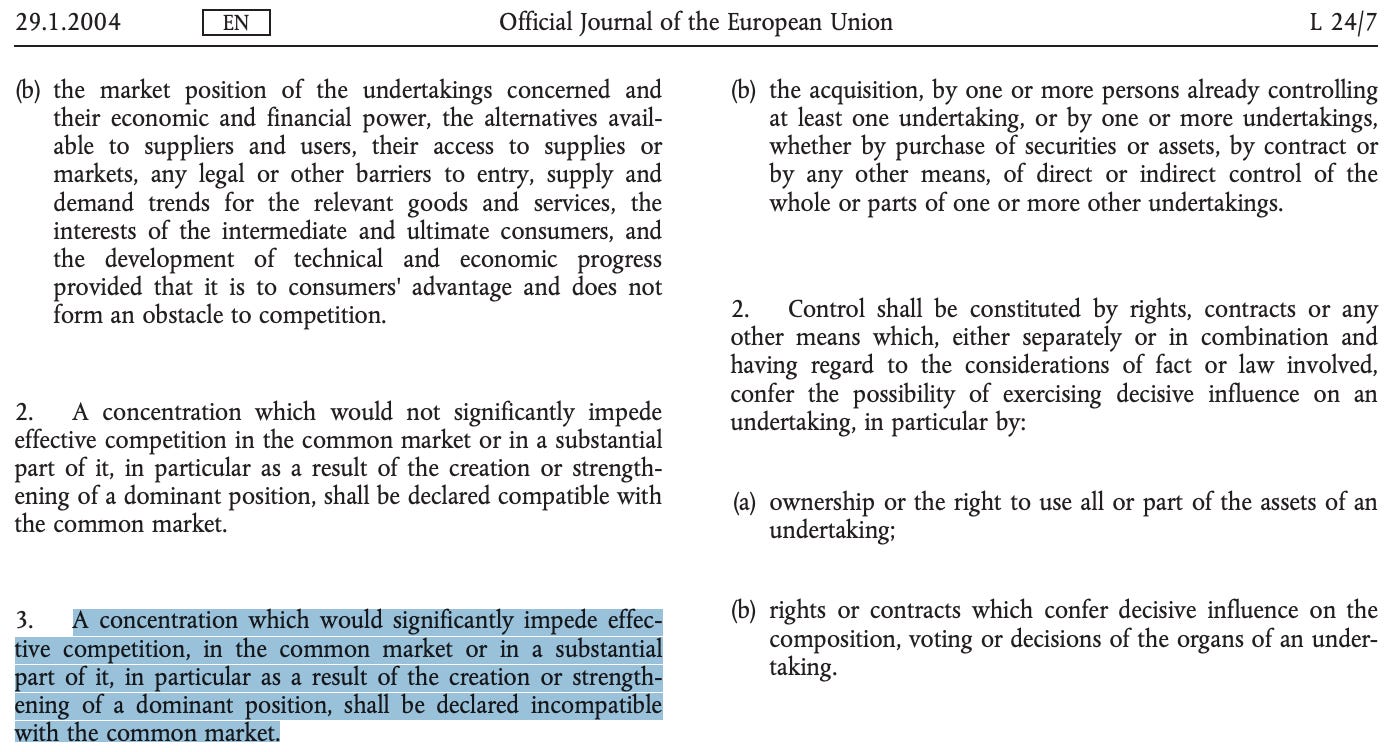
As investors and developers continue to trawl for game-changing metaverse use cases, cross-sector acquisitions are inevitable. But market-munching purchases reliably risk competition scrutiny.
For example, Meta—which has been making XR acquisitions since at least 2014—faced an (eventually unsuccessful) complaint from the US competition watchdog in 2022 for acquiring Within Limit, the gaming company behind Supernatural, a VR fitness app.
Regulators will not want to drop the ball and watch their promising stars get swallowed by large foreign players. But for many start-ups, being acquired is the exit strategy—an inconvenient truth for those hoping for home-grown giants. Referees must avoid putting wannabe competitors back to square one.
This is especially true where start-ups struggle to find private financing to scale independently. For example, in the EU, XR start-ups receive funding at a ratio of just 1:14 compared to their US counterparts.
Mergers and acquisitions have an important impact on incentives to innovate. App development for small studios relies heavily on venture capital to fund their projects… These early investors in VR app development expect to see a return on their investment. The most common way this happens is through acquisition. — Juan Londoño, policy analyst at ITIF, on the Federal Trade Commission’s case against Meta (2023).
Policymakers overseeing mergers and acquisitions in the metaverse space must determine the consolidation’s effect on innovation, market entry barriers, and consumer choice and welfare.
Keep your eye on the ball: in honour of “level the playing field”, there are 16 sports-turned-business phrases in the above passage. See if you can find them!
Metaverse policy
EU institutions
MEPs rubber-stamped two Parliament own-initiative reports from the Legal Affairs and the Internal Market & Consumer Protection Committees.
The European Commission:
opened a consultation on competition in virtual worlds and generative AI, available to contributions until 11 March;
announced in its Work Programme for Standardisation for 2024 that it will request assessments and recommendations for a “secure, interoperable virtual and augmented reality ecosystem and virtual economy” from standardisation organisations;
revealed in its strategy for boosting startups and innovation in trustworthy AI that the upcoming European Public Private Partnership on Virtual Worlds “will support AI-enabled advancements in virtual reality applications” and a “Testing and Experimentation Facility” to develop digital twins; and
held a feedback session on its Virtual Worlds Citizens Panel last year.
Following a joint industry letter citing concerns that the EU’s AI Act would outlaw biometric systems like augmented reality and virtual try-ons, the bill’s negotiators eventually carved out biometrics when used for serving necessary functions or commercial purposes.
The EIC Accelerator—the EU’s start-up fund—opened a 50 million EUR kitty for projects “enabling virtual worlds and augmented interaction in high-impact applications.”
Global Corner
This section comes from our anonymous(!) contributor
👮 Interpol releases a white paper on law enforcement in the Metaverse, citing crimes such as grooming, radicalisation, and cyber-physical attacks. The paper emphasises the need for first responders, digital forensic professionals, and the judicial system to comprehend the metaverse and its accompanying technology to protect virtual environments and safeguard individual rights. Read more.
🇨🇳 China’s Ministry of Industry and Information Technology forms a working group to establish metaverse standards. The group includes representatives from telecom equipment giant Huawei Technologies, video gaming titans Tencent Holdings and NetEase, web search and artificial intelligence champion Baidu, financial technology firm Ant Group and computer maker Lenovo Group. Read more.
🇺🇸 New U.S. research examines how the metaverse is framed in U.S. news media coverage. Findings reveal that the media frames the metaverse as a corporate space for those with buying power: investors, technology experts, and consumers. Users without buying power and users from marginalised groups were rarely considered in media coverage. Read more.
🇮🇳 India’s music industry wants metaverse operators and users to share accountability and responsibility in intellectual property rights infringement cases. This is in response to the Telecom Regulatory Authority of India (TRAI)’s consultation on Digital Transformation through the 5G Ecosystem, which ended on January 22. Read more.
🇮🇳 Meta advocates for interoperability and collaboration in India’s regulatory framework for the metaverse. The company acknowledges that new technologies can bring new challenges, emphasising the need for a robust framework to facilitate dialogue with industry stakeholders to ensure a shared understanding of these technologies. Read Meta’s response to TRAI’s Consultation Paper.
Metaverse EU has TWO exciting announcements:
💪 Stella Meyer, Research Associate and Project Manager at the Lisbon Council, joins the Metaverse EU team! We are delighted to have Stella on board.
🇪🇺 Metaverse EU has officially joined the European Commission’s VR/AR Industrial Coalition. We participated in the coalition’s first in-person meeting on 6 February:
Business
🇩🇪 Siemens announced it successfully certified one of its industrial production through digital twinning: “For the first time ever, an industrial product has been certified for the United States after parts of the required tests were conducted through digital simulation.”
🇩🇪 BMW showed off several immersive products and features for future models, including AR glasses, a new-gen voice assistant, and “automated valet parking.”
🇩🇪 Porsche revealed how it is using mixed reality to present its cars: “The ability to view the virtual models from different angles and perspectives yields a much deeper, and more quickly arrived at, level of understanding than simply viewing images on a screen.”
Events
14 Feb Foundation Metaverse Europe Expert Symposium (Brussels 🇧🇪)
26 Feb – 29 Feb Mobile World Capital Barcelona (Barcelona 🇪🇸)
21 Mar Best of Europe: XR, AI, Immersive Tech (virtual)
10 Apr – 14 Apr Laval Virtual (Laval 🇫🇷)
8 May ARVR Innovate Conference (Dublin 🇮🇪)
29 – 30 Oct AWE EU 2024 (Vienna 🇦🇹)
Website image credit: Adobe Firefly

